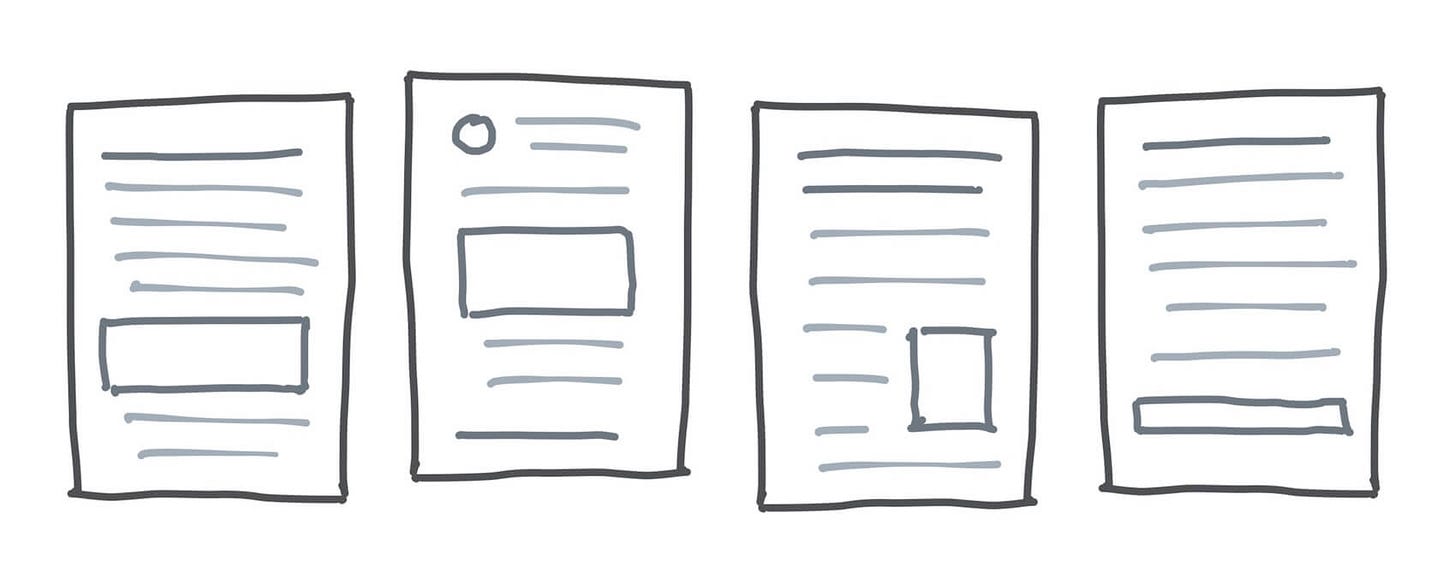Res Extensa #3: Strategy for Startups, Two Years Writing Every Day, Downtime for Thinking, and Unexciting Politics
Building strategy in small, early companies, a two-year writing streak, creating space for thinking, and tempering our political climate
This week's issue is brought to you from the mountains of North Georgia. We're up here for the week to get out of the Florida heat, getting some personal time and recharging (as much as you can when your kids are with you). It wasn't timed this way, but we're catching the region in leaf-changing season.
I'm a couple of days late getting this week's issue out. We're back home from our trip after Tropical Storm Zeta raced across the southeast and directly over North Georgia. The storm came through a couple of nights ago, with howling winds that downed trees all over the mountain we were on. A couple of the dirt roads leading up were blocked, including half of the yard to our cabin. It knocked out power and internet with no sign of it returning, so we bailed a day early and drove home yesterday. Just our luck that we leave stormy Florida weather and have a hurricane follow us into the mountains

On to the week's topics:
Strategy for Startups
Depending on your role or company size, you may or may not be exposed to corporate strategy and how it comes together. My entire working life has been in small organizations, where "strategy" is often implicit rather than explicit, an emergent property of your team's many small everyday decisions. As you grow this stops working as your team becomes more numerous, along with divergence of ideas and opinions on what the company's goals are.

Jumping off of a Jerry Neumann piece, I wrote about the issues with over-strategizing in the startup environment. With such high uncertainty, low margin for error, and limited resources to go around, you can’t afford to make many-month-long bets on tactics that take too long to deliver feedback. In big companies, there’s enough resources to make longer-term strategic bets without squandering the opportunity cost — a precious resource in all organizations, but particularly in startups.
The trouble is that there’s a limit to how much it can do for you in a startup. And the more novel your idea the higher the uncertainty as to what the future of the market holds. Bias creeps in about what you think you know about the predictability of the space; just because you’ve done n hours of analysis doesn’t guarantee you have any clearer an answer than at hour two. But human biases will tempt you to believe you’ve imbued it with more legibility than there really is. The only worse decision making environment than one with no information is one with actively misleading information.
When a multinational enterprise makes wrong predictions and squanders a year, they chalk it up as “R&D,” and maybe revise the budget for next year. In a startup, you lose the company. Incremental, super tight feedback loops are the answer.
A Two Year Streak
I wrote about hitting the two-year mark with posting every day on the blog. As with many positive habits, over the first couple weeks of doing it I didn't have high confidence I'd be able to keep it up more than a few months. But as I referenced in the post, creating a mindset and preparing your environment contributes powerfully to recurring behaviors.

I find myself particularly susceptible to "streak" psychology, for better or worse. You often see streaks implemented as gamification tactics in mobile apps, but usually not to trigger healthy activities. With daily posting, I thought about it in weeks at first, then months, then once the streak counter got high enough, it built a strong behavioral gravity to keep coming back to it.
I'm pressing pause this week on the daily posts to rethink some bigger projects for the site. I have a few ideas kicking around that I’m excited to spend some time on.
Unexciting Politics
Regardless of your political stripes, most reasonable people would agree that we’re in dire need of a less emotional, less toxic, less divisive political environment. Excitement makes for high traffic blog posts, clicks, sensational headlines, and a whole lot more that has us avoiding work on real problems. It’s easier to get in shouting matches on social media than actually have a conversation and get to work, and our current perverse media environment rewards this approach. It’s paradoxical: the average temperature level of the political discourse is so high, one would believe we must be working our way through hard problems. But it looks like the opposite is happening. Tempers raging means less attention on the understated, boring, and critical work to be done by government.
Jonah Goldberg wrote about the problems with our hysterical pre-election environment in his G-File a few weeks ago. I thought he nailed the right level of emotion in politics on The Remnant podcast recently.
Downtime to Think
Generating the best ideas often requires time away from all of your written ideas. Free space to think without access to Wikipedia, your RSS reader, or even your notes app detaches you from any perceived to-do or other distraction, even if the distraction itself is another productive activity.
Running is my scheduled downtime. But I think for anyone, a habit of walking is excellent to clear the mind and give you cognitive freedom.
Thank you for subscribing to this experimental channel. New ideas are brewing for the site that I hope to make time for over the next couple of months. Literature notes, evergreen notes (the “digital garden”), and potentially even some video work I’ve been kicking around.
Let me know what you think so far of the newsletter, and forward on if you have friends or colleagues that might be interested in reading!


